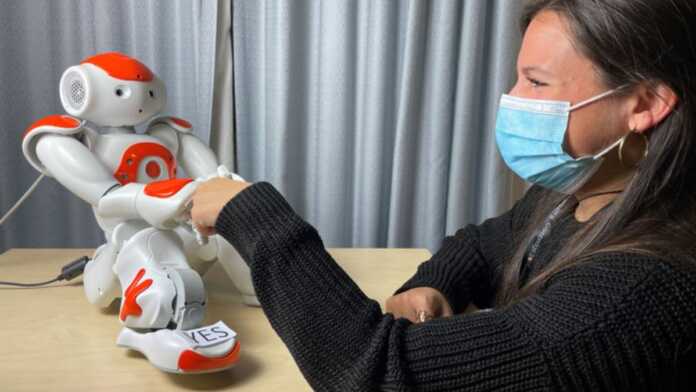Robots can be harnessed as a useful tool for detecting mental well-being problems in children, a new study indicates.
The researchers say the robots could be a useful addition to traditional methods of mental health assessment, without making it a substitute for support from a mental health professional.
A “therapist robot” for children
Roboticists, computer scientists, and psychiatrists at the University of Cambridge, England, conducted a study of 28 children between the ages of 8 and 13, and had a child-sized humanoid robot administer a series of standard psychological questionnaires. to assess the mental well-being of each participant.
This is the first time robots have been used to assess the mental well-being of children, at least in a formal procedure on record. As reported by the research team of this project, the participating children became open to trusting the robot, sometimes sharing information with which they had not yet shared through the standard evaluation method of online or in-person questionnaires.
Professor Hatice Gunes, who heads the Robotics and Affective Intelligence Laboratory at Cambridge’s Department of Computing and Technology, has studied how social assistance robots (SARs) can be used as mental well-being ‘coaches’ for adults, extending the reach of this approach to children over the last few years.
“After becoming a mother, I was much more interested in how children express themselves as they grow and how that might overlap with my work in robotics”Gunes said. “Children are quite tactile and are drawn to technology. They withdraw from the physical world if they use a screen-based tool. But the robots are perfect because they are in the physical world: they are more interactive, so the children are more involved”he added.
With colleagues from the Cambridge Department of Psychiatry, Gunes and his team designed an experiment to see if robots could be a useful tool for assessing children’s mental well-being. “There are times when traditional methods fail to detect flaws in children’s mental well-being, as sometimes the changes are incredibly subtle.”said Nida Itrat Abbasi, the study’s first author. “We wanted to see if robots could help with this process”.
For the study, the participating children were integrated into a 45-minute individual session with a robot called Nao (in the image), a humanoid robot about 60 centimeters tall, while a parent or guardian, along with members of the research team , observed the development of the session from an adjoining room, in which open questions are asked about recent happy and sad memories, mood and feelings are measured, they are made to evaluate images and an anxiety measurement is applied to them under different conditions. aspects.
“Since the robot we use is child-sized and not threatening at all, children can see the robot as a confidant; They feel they won’t get in trouble if they share secrets with him.”Abbasi said. “Other researchers have found that children are more likely to divulge private information, such as that they are being bullied, for example, to a robot than to an adult.”.
The researchers emphasize regarding this project that while their results show that robots could be a useful tool for psychological assessment of children, they are not a substitute for human interaction.
“We do not intend to replace psychologists or other mental health professionals with robots, as their expertise far exceeds anything a robot can do.”said co-author Dr. Micol Spitale. “However, our work suggests that robots could be useful in helping children open up and share things they might not be comfortable with at first.”he added.














